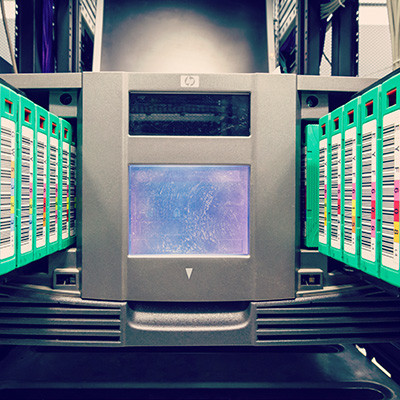Each year, on March 31st, World Backup Day serves as a dedicated reminder, bringing attention to the critical role of regular data backups in ensuring the seamless flow of information. While this awareness day effectively highlights a fundamental best practice, we strongly emphasize the need for an ongoing commitment to the continuous maintenance and safeguarding of backups, extending far beyond the limitations of a single day.
Tritek Networks Blog
Ensuring the safety and security of digital data is a key component to sustaining a smooth functioning business. In light of the increasing reliance on digital information, the implementation of robust Data Backup and Disaster Recovery strategies have become more important than ever. This month, we aim to discuss key components of an effective disaster recovery strategy, emphasizing the importance of safeguarding business data backups.
IT professionals have all but proclaimed the tape backup system, which dominated the data backup space for decades, to be all but dead. This declaration may have been premature however. Over the past several years, there has been a resurgence in companies that use tape backup. This week, we will go into why businesses are willingly utilizing what can only be described as an antiquated technology for their system redundancy.
Despite its undeniable value, data is incredibly fragile. The loss of critical information can spell disaster for a company, making data backup a paramount concern. In this article, we'll explore why data backup is so important for businesses and why it should be at the forefront of every organization's IT strategy.
Data is what makes your business function, and if you’re not careful, you might find yourself without it due to a hardware failure, malware attack, or even human error. You need to maintain and implement a powerful data backup solution to ensure that your business can bounce back following a disaster, and this platform should keep your data as safe and accessible as possible in the process. Here’s how you can implement such a solution.
If a business is in operation today, it needs to have preparations in order to protect itself and its data from potential disasters—a fact that has only become more pressing as digital data has become the norm. Let’s take a few moments to go over what today’s businesses need to include in their disaster recovery preparations to ensure that their data remains protected.
If you have never imagined your business in the crosshairs of enemy hackers, you could be in for a rude awakening. Unauthorized access to important business data could be enough to bring your business’ operations grinding to a halt, among other consequences. You need to focus your efforts on security, including protecting your infrastructure and ensuring its redundancy through data backup systems.
While “redundant” isn’t typically used as a complimentary descriptor, it very much is when it comes to your business’ data and data backups. This is because you want to make sure that you always have a backup copy ready to go. Let’s consider what a business that doesn’t have this redundancy present in its data is vulnerable to experiencing.
Business continuity is one of those things that can easily be overlooked as most businesses do whatever they can to focus on the job at hand. Unfortunately for the unprepared business, there are a lot of situations that can happen that can interrupt its ability to function optimally. Having continuity strategies in place can save organizations a lot of time and money as they are able to get back up and running effectively quicker.
The late American author Kurt Vonnegut once wrote, “New knowledge is the most valuable commodity on earth. The more truth we have to work with, the richer we become.” Written in the 20th century, it has been put in practice by 21st century businesses. As the Internet has grown, the amount of companies expanded, and the amount of data that those companies collect has grown exponentially, especially now that there is a market for such data.










